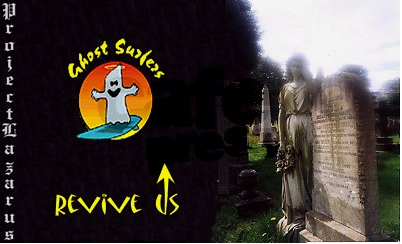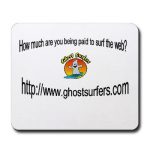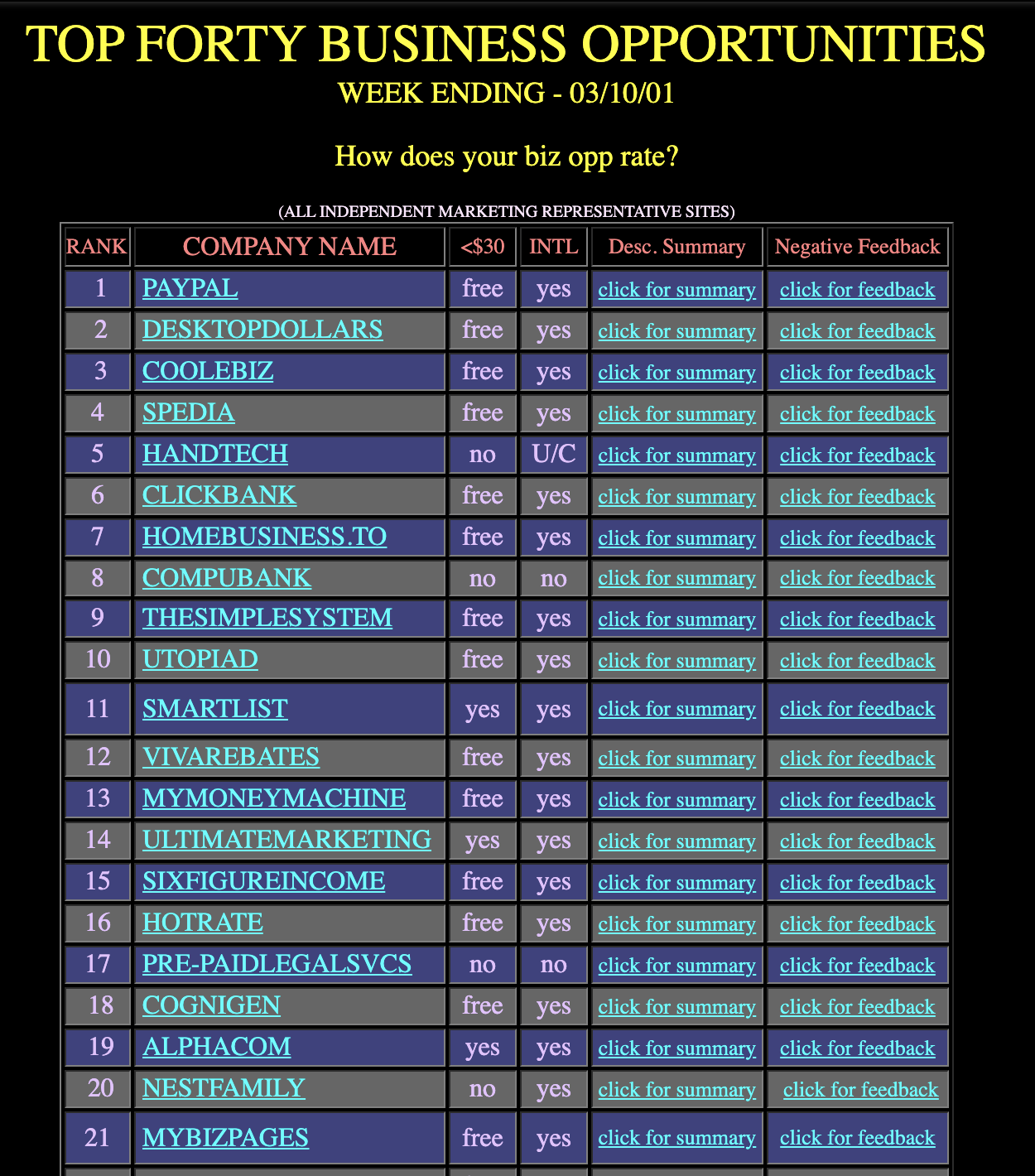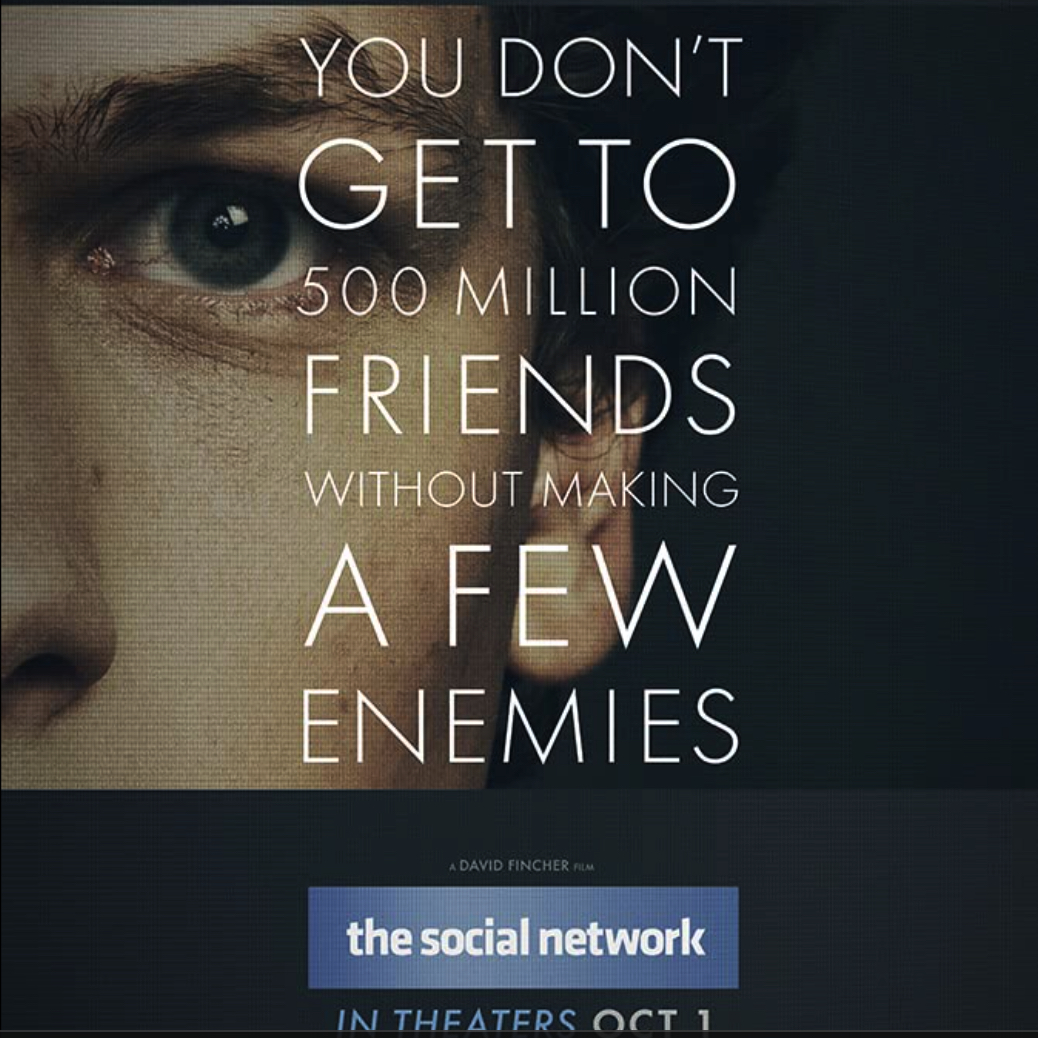The Experience
Google entered the market after the Ǥhost Machine, when Ancestry, Legacy and Find-a-Grave emerged. Facebook superseded MySpace as the social network of choice. On the drawing board, the Ǥhost Machine block-controllable web space was several years ahead of MySpace.
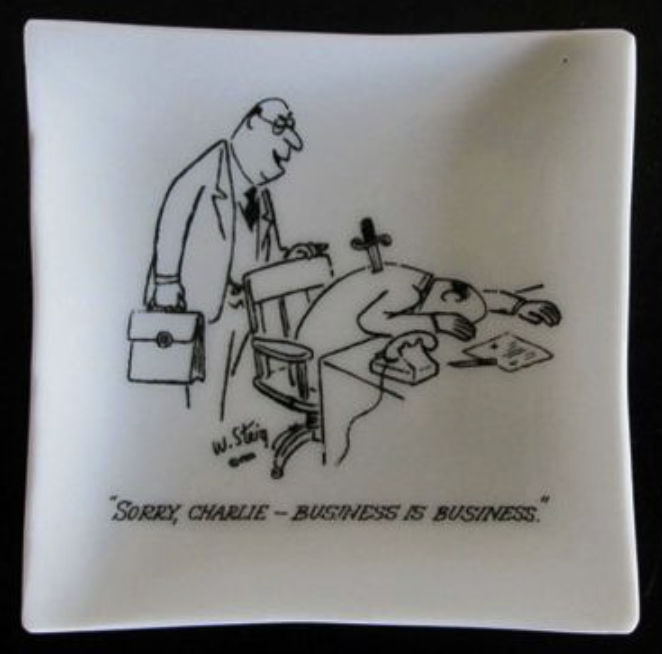
FIXING THE INTERNET WOULD TAKE SOME WORK
If you've been following this story in the order I suggested, then you'll recall that our tens of thousands of phantom shoppers, our ǥhostsurfers, had been abducted by a disgruntled Russian developer who went by the name of Anatoly.
We had just upgraded the system so that it was poised to become a robust ratings-based search engine with customizable web space for members who could meet and friend one another and enjoy privacy controls far ahead of any competitor. But Anatoly, or whoever he was, had put an end to the entire operation and was demanding money to restore it.
In my last two blogs, I took a few steps back to describe the Ǥhost Machine concept in greater detail, and the inspiration behind our original "Charley the Saintly Ǥhost" logo. In this episode, I'll return to what happened after the abduction.
It took us a few weeks to figure out what happened. We had been up and running one day and the whole site was down the next - "404: Not Found." Like a ǥhost, it had vanished. But would it appear again?
Jim Haskins had been maintaining the physical server at Supernet, which was owned by Bob Ross. Bob had located the server at the Church of the Nazarene, in Tallahassee, Florida. Jim was an outspoken Christian man, who always spoke positively. For Jim, it was a matter of faith that the site would be restored and come back stronger than ever.
You may also recall from previous episodes, that my wife and I had spent as much cash as we had to get the first iterations of the Ǥhost Machine up and running. Sesame Street's former development company had agreed to work for a 5% equity share and then an additional $10,000 cash. It was a reasonable deal before the extortion started but it had seriously stretched us.
The mysterious disappearance of Ghostsurfers.com took place right around 9/11. It was a very sad time for all of us. Fortunately, my wife, Lisa, had landed a job in sales for the tourism and marketing division for Palm Beach County, Discover The Palm Beaches. I also wanted to be closer to my aging mother, who was alone in North Palm Beach, so we had moved to nearby Palm Beach Gardens.
It wasn't far from the PGA National Resort that Charley once featured in a commercial for Allied. Dad loved golf. But I had little time for it myself. In those days, I took odd jobs to pay bills, avoiding career commitments because I hoped we could get the Ghost Machine off the ground. The hacking and extortion were a devastating blow.
Haskins introduced me to his business partner, Rich Mill in Tallahassee. Together, they analyzed the server that had been hacked and showed me how all eight back ups had been systematically destroyed by an insider through a backdoor. I was impressed with their understanding of coding and forensics. Whoever had done it had been working on our group forum and chat code.
We talked about how to get the Ǥhost Machine up and running again. Unfortunately, the only way to do it was to start from scratch. The site was gone for good. So was any means of contacting the ǥhostsufers to explain what had happened.
Born Again
It didn't escape my notice that Haskins was a born again Southern Baptist. He was very vocal about it. I had mixed feelings about that. I was more of an action kind of preacher. Show me. Don't tell me. But I was also a man of faith. And I had had a vision of my father commanding me with the two words - "total marketing." I was convinced that those words must have meant something for my life. So when Haskins started talking about building the Ghost Machine back up from scratch, I considered the power that such a thing might have. Could an entire company be born again and come back to life for the whole world to see?
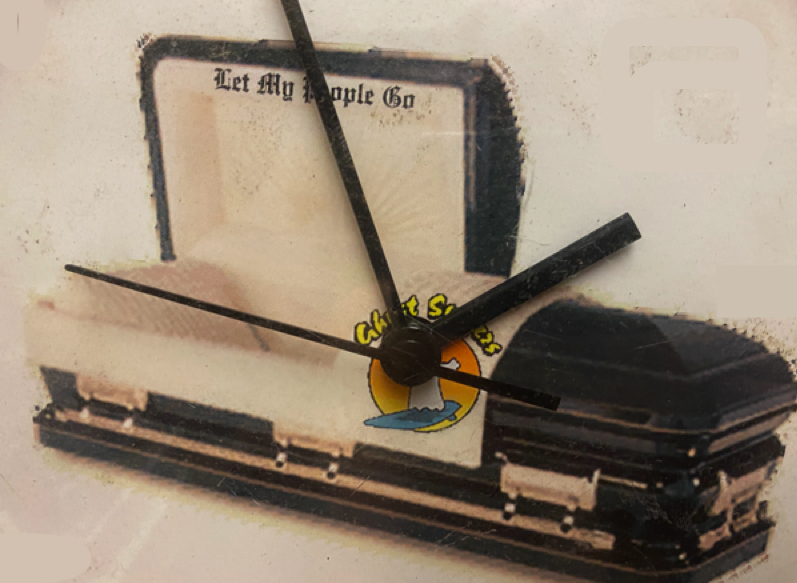
HOW LONG WOULD IT TAKE TO FIX THE WHOLE INTERNET?
It seemed to be an apt fit for ǥhosts to vanish and then reappear. And then when the Russians who were holding our data started offering to sell it back, it felt like an abduction. With Haskins talking about being born again, I thought of Israel. Israel had been a nation reborn after 2,000 years. Even its language had been preserved.
Israel had been released from Egypt with the words, "Let my people go!" They were slaves to evil kings. A promised land with a godly religion would be their release. As they saw it, a better way of living, a just life under better law and better understanding lay ahead. It was established through Moses, as he led them.
I wanted a better Internet - an ethical one that delivered what it promised. I wanted ethical business to be done on that Internet. There was something about that religious imagery that seemed fitting. The Internet itself did need to be born again. It wasn't just the ǥhostsurfers. It was everyone who used it, and it was how it was designed and managed. There was a certain bondage that was holding every one of us back. We needed to fix that.
Clearly the Internet was broken. The whole world was broken. If you go to buy something and think it will be one price or one type of thing, but it turns out to be another, that shouldn't happen. It's unethical. It needs to be fixed. If you are told you can get information on a search engine, but the web has buried that information so deeply you can never find it, that shouldn't happen. It's unethical. It needs to be fixed. There is a lot that shouldn't happen but does. Our ǥhosts had halos for a reason. We were there to fix the Internet.
But we had been removed. I knew that Anatoly didn't really have our member data. He would take the money and ask for more, checking my naivety, as robbers often do. Haskins agreed. Don't pay the Russians.
He had seen this sort of thing before, as had I. The Nigerian scams abounded even way back then. George Bush was reminding us not to negotiate with terrorists. And Anatoly did nothing to prove he would restore the data, or even that he could.
If there was one thing I had learned from all this, it was to resist doing business with bad players. Better to have no business at all than to partner with robbers. Discernment mattered as much then as it did the day I first started Ghostsurfers.com.
Jim started helping me rebuild. We called it the Lazarus Project. He reinstalled a starter Ghostsurfers.com site that allowed members to build pages using the initial iterations of the block system I described. He believed that my members would come back to the main page for news. He would do it in exchange for helping him sell his dial up Internet service at Supernet.
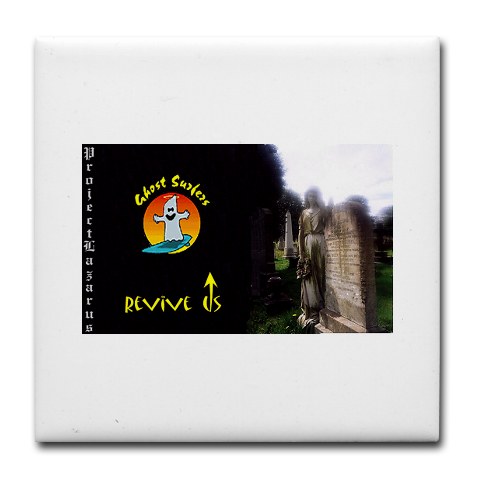
PROJECT LAZARUS COASTERS, SHIRTS, MUGS & MORE
We did what we could to have something to sell to members in addition to Supernet dialup to raise support for building the Ghost Machine back again. If we could do it, Haskins and Mill would be willing to work for 50% of my share of the equity. The hope was that we could quickly get back into net profit and partners who would do the right thing would then be in control. Haskins' initial work showed good faith and promise.
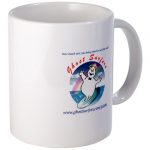 Member URL Coffee
Member URL Coffee URL Mouse Pad
URL Mouse Pad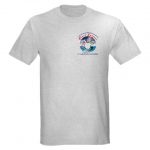 Tee Shirts All Sizes
Tee Shirts All Sizes Sweat Shirts
Sweat Shirts Let My People Go!
Let My People Go! Coffin Clocks
Coffin Clocks Coffin Tees
Coffin Tees Project Lazarus Coffee Mug
Project Lazarus Coffee Mug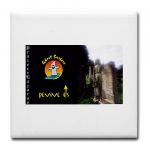 Revive Us Coaster
Revive Us Coaster Apron of Truth
Apron of Truth Revive us Sweatshirt
Revive us Sweatshirt Renew the Web Tee
Renew the Web Tee Ǥhost Totes
Ǥhost Totes Coffin on a Jersey
Coffin on a Jersey Ǥhost Hat
Ǥhost Hat Lazarus for Women
Lazarus for Women Recycle with Charley
Recycle with Charley Renew & Recycle
Renew & Recycle Project Lazarus
Project Lazarus Long Sleeve Tees
Long Sleeve Tees
- «
- 1
- 2
- »
It was a shot in the dark. We were disconnected from the members. I hated to be the bearer of negativity with so much positive confession going on, but I had a sense that my members would be unforgiving. More than thirty days passed before the site returned with little more than a short message that we were planning to come back. The roll outs came too slowly to build any momentum back up with the original members. I imagined a few might trickle in but not enough to sustain a business, either theirs or ours.
No, I was pretty sure that dead meant dead. We were dead, for sure, and there wasn't going to be any bringing us back to life. Not under those circumstances. What the members would want was income. They had no shortage of fully operable businesses they could utilize to make that happen. Their sense of nostalgia and loyalty would hardly bring them back.
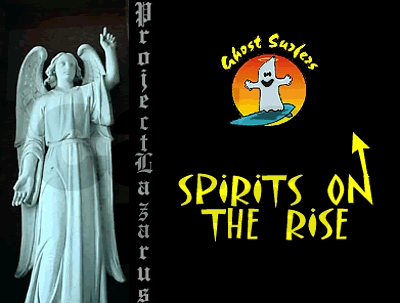
THINKING POSITIVELY IN A NEGATIVE WORLD
While I was certain Rich and Jim's statements of faith were right in a long-term ultimate sort of way, I wasn't so certain that our revival was going to be so immediate or easy. My gut was telling me the tide was going the other way. I could feel the currents. I could sense new sets coming in from far off shore, but not then and not there. I was going to have to find some other way to raise the ghosts back up again later on.
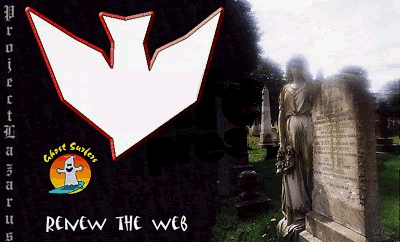
GOD THINGS REQUIRE GOD TIMING
Total Marketing was definitely a God thing. It meant renewing the web. It meant fixing it so that it was a service to humanity, rather than something that served the few. But I knew it would need much more than I could do for it. Good grief. I had been literally wiped off the Internet! I had no way to communicate.
It had been a hard blow. Once we were urging our members to build their empires and clone them. The flow thru technology I had invented and applied for a patent on allowed them to quickly and efficiently make duplicate sub-sites they could tweak for target audiences. We would grant power to our members. Now ... I was nothing. I couldn't even send an email.
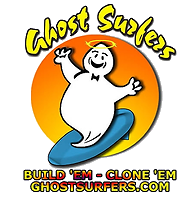
I had been cut off from the land of the living. Why should anyone come visit the site? Look at the cemeteries around the world? Who visits the dead? We abandon them. We forget them. We move on with our lives. My worst fear was that I would become like a ghost, seeing others but never seen by them. I would be but a vague memory to them. It would be like I never existed at all.
I don't think Jim or Rich understood what I was telling them. As much as we wanted to and as good as the concept was, we were not going to be able to revive Ghostsurfers.com at that time. I created promotional material for sale by the few exceptional members we might have, but I knew the little creations would be for a later time. Every day that passed confirmed that feeling.
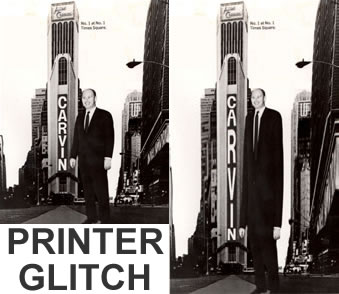
A COMPARISON OF THE ORIGINAL WITH THE STRETCHED VERSION CREATED BY PULLING ON THE PRINT OUT.
TIMING MATTERED.
I'm sure Rich and Jim had a talk at some point. I had plenty of items for sale, too many to post here. But more importantly, their product was wrong. Selling dialup at a time when cable was coming in and when wireless was on the horizon was more bad timing. Sensitivity to timing is essential. My users were more savvy than that. They may have been interested in dirt cheap services, paying for their computers by giving up part of their viewing screen, but they had a need for speed that only cable providers were going to provide. It's another story. I do owe you some continuity though. So, in the next section, I'll briefly describe what happened over the next few years, while the Ghost Machine was resting not so peacefully and the web was starting to widen and accelerate.
Ǥhostly Torments
MySpace appeared for everyone to enjoy about two years after the Ghost Machine went down for the count. In its day, it was a very popular site, which utilized some of the block building concepts we had. In this little section, I'm going to describe some of the things the major web portals you are probably familiar with did and didn't do. Mainly, I'll focus on what they didn't do that they could have and should have done.
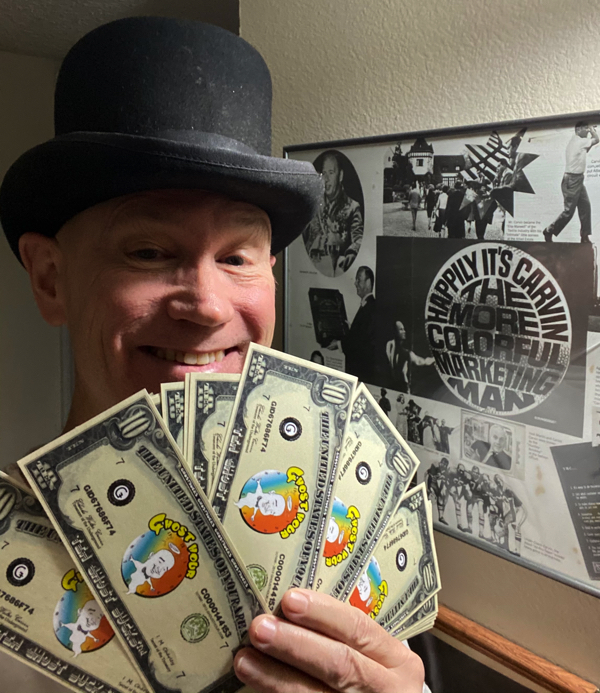
REVENUE SHARING MIGHT HAVE SAVED MYSPACE
My torment number one was that they didn't share their ad revenues with their users. This was both a lost opportunity for MySpace and for the general public, which would have run for Internet gold much faster if they knew they could earn some money on it. In all honestly, I don't think Facebook would have plucked off their user base if MySpace was holding their money and they were earning revenue from it, especially if they had offered a referral rewards program like the Ghost Machine had.
Bitcoin appeared back in those days and there have been many crypto-currencies since. That's not what I'm talking about. GhostBucks were a controllable user reward - not a crypto-currency. Merchants who accepted them could be promoted for doing so by the platforms. None of the major platforms developed its own currency for that purpose. There would have been great money in it for them if they had. I was surprised they didn't figure it out. And I was disappointed for the users for the lost opportunity.
It was also each platform's loss. One thing that made Ghost Bucks unique was that in order to earn them you had to do what the portal wanted you to do. It was built into the algorithms of the Ghost Bucks formula. Neither MySpace, nor Facebook nor Twitter afterwards offered their users revenue sharing of any sort. Their shareholders knew they could become giants without it. The more money that went into their own pockets, the better. They may never have considered it. I was tormented not just by my own loss, but by everyone's.
Google and YouTube wisely offered ways for everyday users to monetize their own content by allowing advertisements on it. The rule of greed still prevailed though. The people's share was fractional. Earning a full time living through YouTube or web publishing was very difficult to accomplish. Just a sliver of people won the income games on Amazon, eBay and affiliate marketing. Most wasted time and money. And there was no longer an Internet Business Monitoring Bureau to protect them.
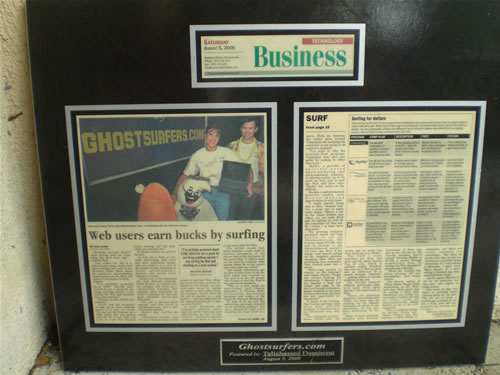
REVENUE SHARING COULD INCENTIVIZE VALUABLE BEHAVIOR
The Ghost Bucks formula had within it ways of incentivizing user behavior that would do much more than Surf4Pay advertisements. It rewarded them for actually visiting sites and buying things and completing surveys while they used the portal itself.
Users would search for vendors who accepted Ghost Bucks because they wanted to buy specific things. It would trigger the system. Nothing like it was ever developed that I ever saw.
The closest thing to it was coupon codes. Savvy buyers find Internet coupons before making purchases. This saves them some money, but there isn't any revenue sharing in it. It isn't connected to a currency.
A rewards currency is more like what Sky Miles are on a credit card. The more you use the card, the more you earn based on a rewards formula.
In the days of MySpace, Google came on the scene and eliminated categorical searches in favor of key words. I'm sure there were web analytics they went by in deciding to go with their classic clean look. For Google, the ads would pop up on the search results pages rather than the main page, which was pretty smart. When they first came out, they emphasized speed and comprehensiveness. You would get so many million results in a fraction of a second.
Google's speed impressed everyone, most especially me. It proved to me that a people-powered search engine was going to be a John Henry type of project I knew I would lose. But integrating with technology was another matter. There are some things that search spiders just can't do, like tell the difference between the state of Montana and Joe Montana. Don't get me started on examples.
This was bound to become something recursively reinforcing. The more popular things get, the more they get found, the more they get found, the higher up they go on lists.
Google was quite useful for those looking for unique things, but for all the millions of results, they weren't presented in any orderly fashion beyond popularity. In all, whether it was YouTube, Facebook, Twitter, or anywhere else, what people were bound to increasingly find, based on search algorithms, was what was most popular. The result is that the vast majority of the Internet would never be found. It would be like a ghost, ever wishing it had some attention, but never getting it.
Google did offer search by category for those who knew how, as well, but hardly anyone every tried any of Google's advanced search features because they never knew where to find them. They specialized in search and yet, nobody knew how to do that search.
This seemed odd, given that it was their core mission. What made me furious, when I came to believe it, is that hiding information, even scrubbing it, had been deliberate. Google, it seems, had figured that by proving they had accessed every web page on the Internet, they could dictate the new rules, controlling the flow of information throughout the world. If you wanted your searches to come to the top, you had to pay for it.
It wasn't all about good search results. It was all about money, control and power. It served the few. The many were out of luck. They were like ghosts. They could put all the effort and money they wanted to into their web properties. But they would never be seen by anyone.
Invisibility hurt. It tormented me. I might have escaped it if I had money to pay for ads but I didn't. I was getting older. I took a shot at some normal jobs like normal people do for a few years. When Facebook came on the scene and I started connecting with old friends from Palm Beach, I started to believe that someone with some money would help me build the Ǥhost Machine up but Facebook did the same thing to me that Google did. It made me invisible to all but a handful of people based on its own relevancy algorithms.
Facebook was a particular torment to Lisa, who not only shared in our irrelevance, but remembered what it was like to be known by thousands of people on the Internet, hosting giant chat discussions, leading meet ups, and being where Zuckerberg was. She was flummoxed after seeing the Social Network with me, a movie about Facebook's beginnings. Zuckerberg had stolen someone else's work but was getting accolades for his magnanimity.
The struggle was real. To make matters worse, Lisa lost her job after Florida tourism took a hit post 9/11. Shortly after that, she suffered from a stroke that left her paralyzed on one side the rest of her life. Despite her handicap, she re-enrolled in school and got a degree in Public Administration but soon discovered that the disabled and the elderly have distinct disadvantages in this world, even Magna Cum Laude. Facebook serves as a daily reminder of what it feels like to be powerless. It is like the experience of a ǥhost.
Connecting with old friends creates an illusory start to the renewed hope that those we've known will bring us out of our obscurity. We incorrectly believe they will somehow begin to pay attention to us. But what people pay attention to is the rich and the famous and the news. They don't pay attention to each other. In fact, they attack each other mercilessly as they seek vainly after their own illusions, believing they can persuade others to think as they do. They don't just ghost those they disagree with. They demonize them.
For Dr. Epstein's testimony before the Senate regarding Google's manipulation, start at the 5 minute, 30 second mark. I would go on with an endless list of pet peeves and observations on what big tech is doing wrong and how it could be fixed. For brevity, and because being "ghosted" is such a common experience for almost everyone, I'll move on because there should be very little need to convince you. Shortly after Facebook amassed almost a billion users, wireless technology took over and the primary method of accessing the Internet was by mobile phone. This would produce a dramatic shift in the approach the Ghost Machine would have to take if it was ever to be revived. It also presented tremendous opportunity. A new set was coming in. I had been waiting for such a time as this ...
